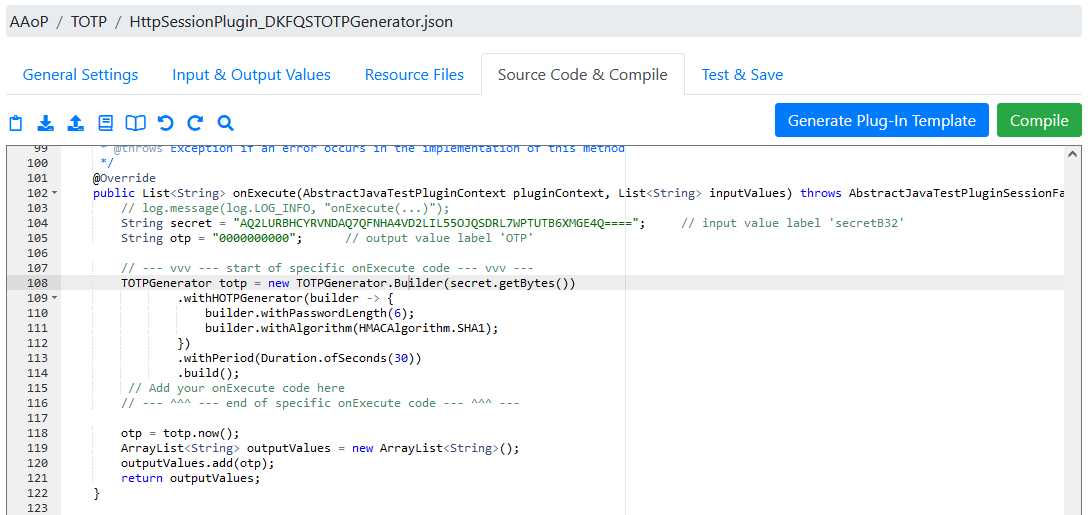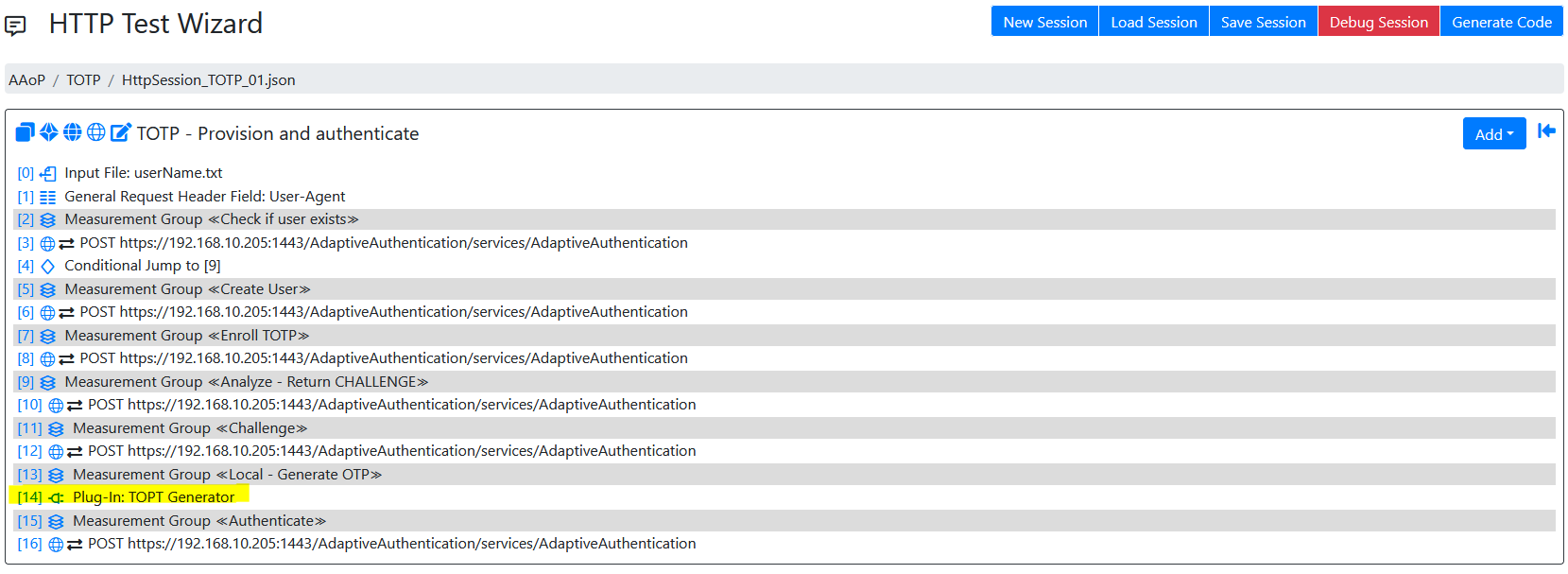Test script involving OTPs? No problems
Say that you have an application that requires customers to authenticate using a Time based One Time Password (TOTP), generated by a mobile application. These OTPs are typically generated by implementing the algorithm described in RFC 6238.
Thanks to Real Load’s ability to implement plugins using the HTTP Test Wizard, it’s quite straightforward to generate OTPs in order to performance test your applications or to be used as part of synthetic monitoring.
So… from theory to practice. We had to implement such a plugin in order to performance test a third party product that requires users to submit a valid TOTP, if challenged. First, we’ve selected a Java TOTP implementation capable of generating OTPs as per the above RFC. There a are a few implementations out there, we decided to use Bastiaan Jansen’s implementation. A few lines of Java code only are required to generate the OTPs, and this implementation relies on one dependency only, so it was the perfect candidate.
Define input and output parameters
First thing to do is to define which input and output values the plugin requires. Things are quite straightforward in this case, as most of the TOTP related parameters are well known (like OTP interval, number of digits and HMAC algorithm), so we’ve hardcoded them in the plugin’s logic. The only variable is the secret (B32 encoded) that is required to generate the TOTP, which which is specific to each Virtual User.
The only output value is the generated One Time Password.
Using the PLugin Wizard, we configured the parameters as follows:

Implement the plugin logic
Next step is to implement the logic to generate the TOTP. In theory you can go key in your Java code in the Plugin Wizard shown in the screenshot below, but I’ve actually prepared the code in a separate IDE and then copy and pasted it back into online editor. Plz note that the Wizard will produce all scaffolding code, you just have to add the code shown between lines 108 and 115.

Test
You’re now ready to test the plugin in the Wizard by going to the Test and Save tab. Provide the TOTP secret as base32 encoded string in the input parameter field:

… then test that the returned value is correct. Compare the value to the value generated by an online generator, there are a few out there.

Add to your test script
The last step is to add the plugin to your test script and invoke it at the right spot, like shown here:

The plugin’s output value will be assigned to a variable, which in turn will be used in the next test step.
You can now use the script both for synthetic monitoring or performance testing on the Real Load platform , even for scenarios where a user has to provide a valid OTP.